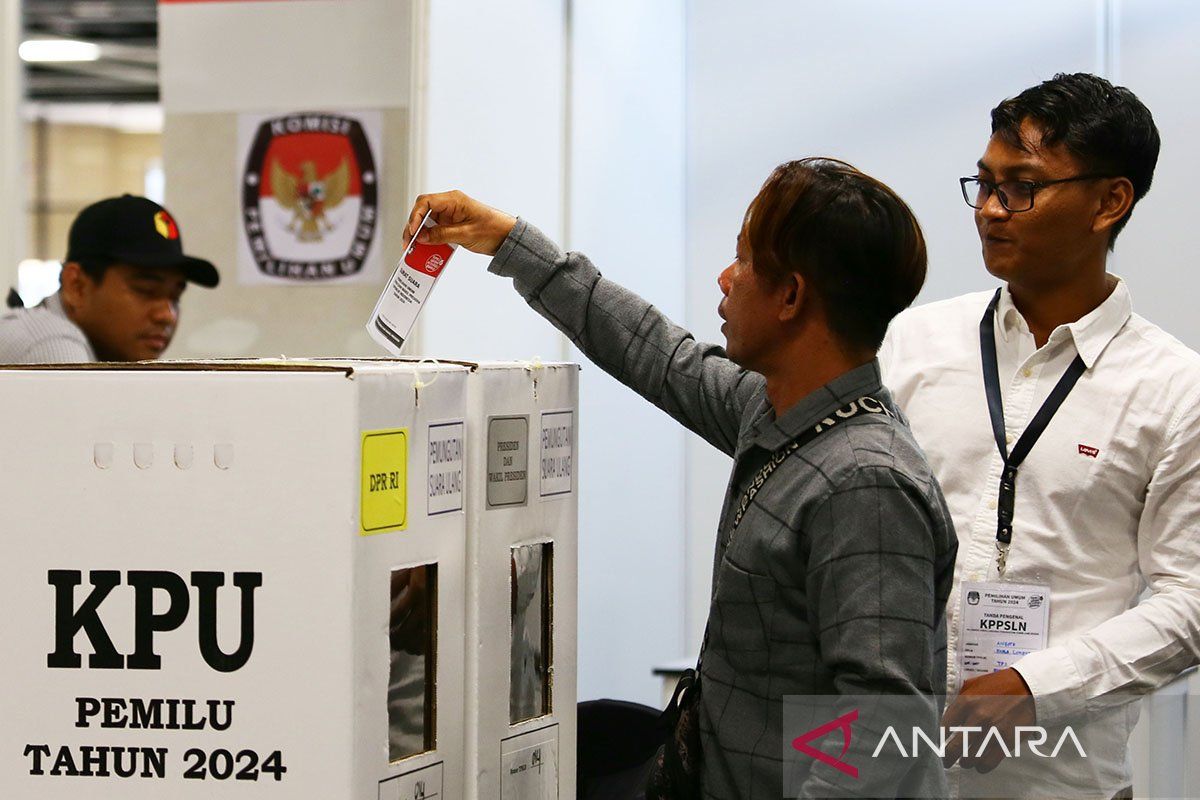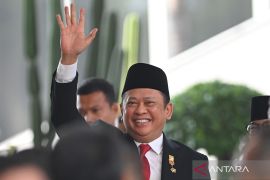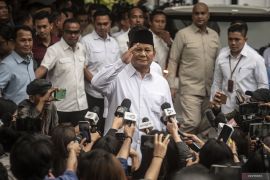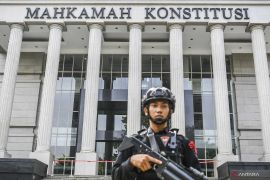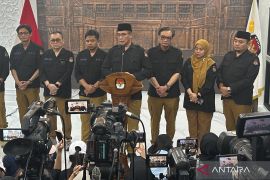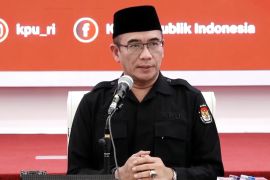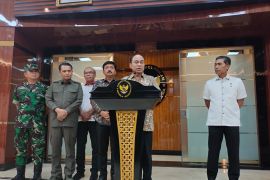During the hearing, Justice Ridwan Mansyur emphasized the need for a change in the paradigm on the neutrality of executive power to realize honest and fair general elections, as mandated by Article 22E, Paragraph (1), of the 1945 Constitution.
The article firmly states that elections must uphold the direct, general, free, confidential, honest, and fair (luber jurdil) principles.
A paradigm change would require a revision of the General Elections Law.
Apart from that, restrictions on the use of or linking of government or state programs with personal interests, especially during elections or for other electoral interests, need to be regulated before the next general elections or regional elections take place.
The distribution of social assistance close to the election period also needs to be regulated clearly, especially with regard to distribution procedures, namely the time, place, and parties who can dole out such assistance.
Such regulation is deemed essential so that the distribution of social assistance is not perceived to be guided by electoral interests. More so, because funds for social assistance are sourced from the state budget (APBN).
Regulations are considered important to ensure the provision of social assistance — one of the issues raised in the 2024 Presidential Election result dispute —does not translate into incumbents or public officials managing the regional budget during regional elections.
According to MK Chief Justice Suhartoyo, there are several weak points in the regulations on general elections, such as the General Elections Law, the General Elections Commission (KPU) Regulation, and the General Elections Supervisory Agency (Bawaslu) Regulation, which tie Bawaslu's hands from taking action on general election implementation.
The General Elections Law does not yet have regulations on activities that can be categorized as campaigns carried out before and after the campaign period begins.
The absence of such regulations can provide an opportunity for election violations to occur without inviting legal action or administrative sanctions. Therefore, improvements to the Election Law are being made.
The improvements include clearer regulations on administrative and criminal violations during general elections to prevent ambiguity.
The improvements are also being carried out to maintain the neutrality of state officials, especially those who are also members of political parties and those participating in the elections as presidential candidates, vice presidential candidates, campaign team members, and campaign organizers.
Thus, there will now be clearer and more detailed regulations for people joining political campaigns while simultaneously carrying out state duties so that their interests do not overlap.
The regulations are needed to prevent the use of state facilities for the purposes of political campaigns or the use of political campaign attributes while discharging state duties.
Preventing conflicts of interest
According to a political science professor at Andalas University, Asrinaldi, the revision of the General Elections Law must cover the nomination process for election participants to prevent conflicts of interest.
Further, strengthening the authority of the Bawaslu is deemed necessary, especially during the process of solving problems. The law also needs to regulate the position of a president whose second term in office is drawing to an end.
Meanwhile, a political science professor from Sumatera Utara University, Muryanto Amin, stated that the revision must cover the issues of non-neutrality, populism politics, and election management in greater detail.
It has also been deemed necessary for lawmakers to consider the points raised by the MK justices so that the revision of the General Elections Law can be made more comprehensive.
Meanwhile, a political observer from the Veteran National Development University Jakarta (UPNVJ), Ardli Johan Kusuma, said that the General Elections Law needs to be revised in the context of positive change to realize legal certainty.
Improvements in regulations related to the general elections, including the General Elections Law, need to continue to be pursued to create an ideal general elections system.
However, the most important thing is the commitment of the elites to carry out and comply with what has been regulated in the law.
A commitment to uphold morals and ethics in carrying out and complying with the law is deemed crucial amid efforts to improve the General Elections Law.
A political observer from Padjadjaran University, Yusa Djuyandi, said that the revised General Elections Law must regulate the consistency of requirements and determination of election participants.
The House of Representatives (DPR), as a legislative institution, has welcomed the discourse on revising the General Elections Law. One of the legislators who have voiced their support for the revision is DPR Deputy Speaker Muhaimin Iskandar.
According to the DPR, the revision of regulations on general elections is needed to tackle all the loopholes in the General Elections Law.
Meanwhile, deputy chair of Commission II of the DPR, Ahmad Doli Kurnia, has also responded to the discourse on improving the General Elections Law.
The presidential institution is said to be included in the study of the revision of the General Elections Law as a response to the president's role in distributing social assistance, which presumably had an impact on the vote share of one of the presidential and vice presidential candidate pairs participating in the presidential election.
Support for the revision has also been voiced by general elections organizers, such as the head of the KPU's law and supervision division, Mochammad Afifuddin.
All initiatives and inputs for improvements to the General Elections Law have continued to be supported by election organizers.
Currently, the DPR is in its recess period. The next session is expected to start on May 14, 2024, as per the institution's official website.
Thus, it is expected that, when the next session period starts, the evaluation and revision of the General Elections Law will be discussed and completed.
Related news: MPR Chairman urges General Elections Law reform
Related news: No evidence of Jokowi's partiality to son's VP bid violates law
Related news: MK decides parliamentary threshold to be revised for future polls
Translator: Rio Feisal, Raka Adji
Editor: Azis Kurmala
Copyright © ANTARA 2024
